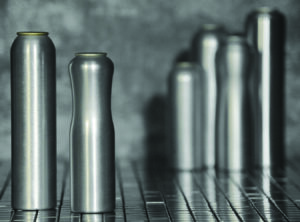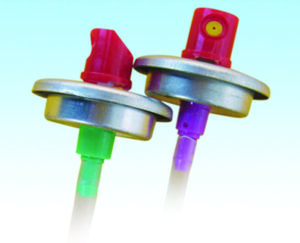Written on: October 2, 2018 by W. Stephen Tait
Hello, everyone. All spray package materials are susceptible to corrosion. There are a variety of materials used to fabricate spray packages:
Metals, such as aluminum, steel and tinplated steel (ETP)
Polymer coatings, such as epoxy, Micoflex, PAM, PET, etc.
Polymer films
Nylon used for valve bodies
Stainless steel used for valve springs
Metal corrosion is caused when valence electrons are transferred from a packaging metal to ingredients in a formula. The metal atoms become metal ions during their electron transfer to formula ingredients; this changes the chemical states of the metal atoms from atoms to ions as a result of the electrical transfer. Thus, metal corrosion is referred to as electrochemical corrosion because it is a hybrid reaction that has both electricity (electron transfer) and a chemical change of state (atom to ion).
Polymer corrosion is a chemical degradation of a polymer structure when formula ingredients absorb into the bulk polymer. There can also be an electrical charge transfer with polymer corrosion when ions and polar molecules absorb into and diffuse through the polymer.
Consequently, corrosion is broadly defined as the degradation of materials by an environment.

Aluminum aerosol cans

Steel aerosol can
The degradation of materials includes loss of:
There are several types of possible spray package failures modes:
Different types of corrosion lead to various failures modes. The different types of corrosion that contribute to or cause different types of spray package failures are:
General metal corrosion

General metal corrosion can lead to valve orifice plugging
(photo courtesy of Innovative Group)
Localized metal corrosion
General polymer corrosion
Localized coating or laminate film corrosion
Hybrid corrosion consisting of polymer delamination and metal corrosion under the delaminated polymer coating or film
Material corrosion with subsequent package failure cannot be predicted using first-principles. Fortunately, corrosion tests are available to determine if material corrosion is possible, how fast materials are corroding and the length of service life when package materials corrode. Corrosion testing could be either a conventional storage test (conducted for at least one year) or a shorter length electrochemical corrosion test.

Integrating a company corrosion database with results from corrosion testing will help prevent surprise corrosion that leads to a disrupted market or a delayed new product introduction.
Thanks for reading Corrosion Corner and I’ll see you in November. SPRAY